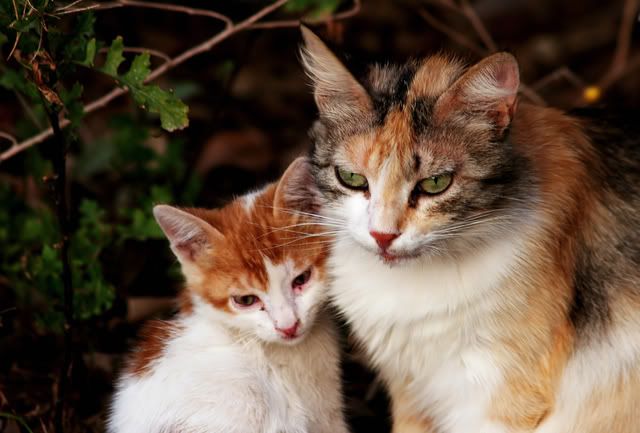
Have you and your cat gone green? If not, consider converting your cat’s litter to something that is more earth friendly.
According to the United States Geological Society, eighty-five percent of the clay mined annually is used to absorb pet waste. Clay cat litter use negatively impacts the earth from the time it is mined beyond the time after a cat owner disposes of it–by sitting in landfills.
Clay is mined from the earth and all mining operations are harsh on the environment. Strip mining is used to dig into the earth after the clay. The clay is extruded and the process leaves a nasty pit in the earth.
After mining, the clay has to be transported for treatment. The clay is transported and dried using petroleum products—not very earth friendly there either.
Let’s look at the cat litter options:
- Clay
- Silica
- Cellulose
- Toilet Training
Clay
Clay is the least environmentally friendly. The most popular product, because it clumps, is the sodium bentonite clay. This product remains popular because it is economical to the consumer and so comprises most of the market sales.
Silica
There are other options to clumping clay such as silica products. The silica gel is made from silica dioxide which is then made into sodium silicate. It is highly absorbent, very light, and can be used for a longer duration than clay but it also has an environmental impact because it ends up in landfills.
The problem with sending used litter to the landfills is that they are packed so tightly that little of the oxygen and dirt is available to help with the biodegrading process.
Cellulose
Cellulose litter is probably one of the most ecologically friendly choices. Litters made from corn, wheat, beet, soy, pine, pulp, and recycled newspapers are biodegradable. Some can even be used for composting or mulching after feces are removed. This product may also end up in landfills but has more chance of breaking down if it is not wrapped in plastic bags.
For instance, Close to Nature Cat Litter is made from soybeans. It clumps but doesn’t destroy the earth like clay litters do.
Also, once used it can be used in the garden if you choose to do so. The new packaging is biodegradable–making it a great product and a true eco-friendly product.
The Organic Farm Store online manufacturers the product so if you want to give Close to Nature Cat Litter click here and then let me know your opinion.
Toilet Training
I talked previously about how to toilet train a cat and about toxoplasma gondii. This eliminates (no pun intended) the need to use any litter. There is concern over the transmission of toxoplasma gondii to wildlife. Sea otters were thought to have been infected from feces that may have been passed to them through feral cats or from infected cat feces that were tossed into storm drains or flushed down the toilet. If you keep your cats indoors there is little risk of infection or transmission.
I hope you will take steps to live a greener lifestyle and include your pet in the efforts. Take a minute and let me know other ways you have found to go green with your pet.

